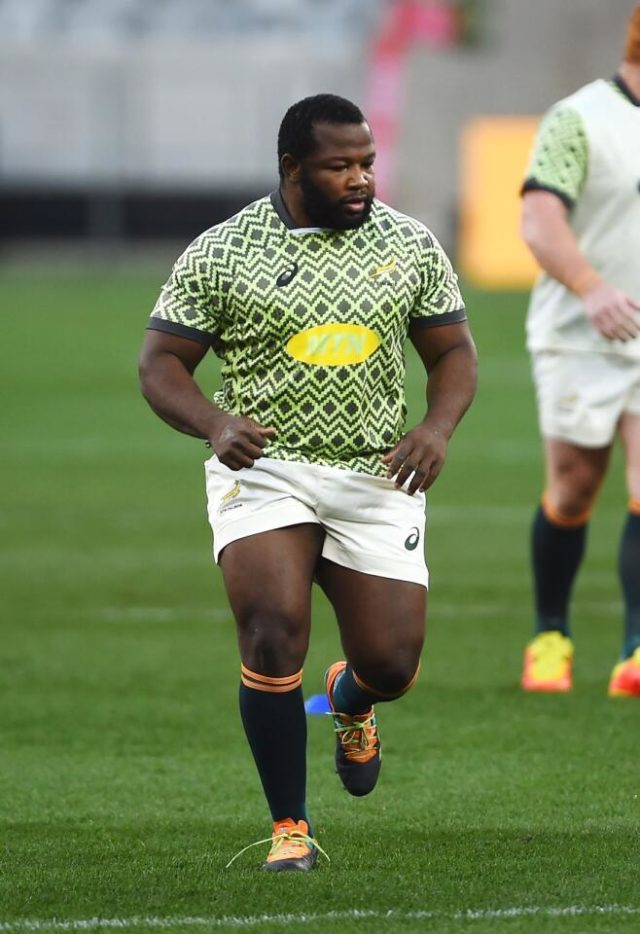If the Springboks want a better chance of beating the All Blacks they should actually implement what Ox Nche so accurately explained as the team’s DNA, writes MIKE GREENAWAY.
CAPE TOWN – PROP Ox Nche gave an interesting answer when he was asked earlier this week how he would describe the DNA of the Springboks.
“We’re a pretty physical team. Our strong suits are our set-piece and our defence. So, I think those are the two main things. No one wants to miss a tackle in every single game, and we want to dominate teams physically as well, in our carries,” Nche said.
“And our set-piece has been the consistent thing as well – where we want to impose our presence on the field as a forward pack there.”
ALSO READ: Is Boks’ game plan still working?
“DNA” has become a bit of a swear word in South African rugby circles following the Boks’ third consecutive Rugby Championship defeat last weekend, when they went down 19-17 to the All Blacks in Townsville. They will be going all out to prevent New Zealand from securing what their coach
Ian Foster is calling a “grand slam” in tomorrow’s final showdown at Robina Stadium on the Gold Coast (12.05pm kickoff).
ALSO READ: For All Blacks being No.1 is not as important as beating Boks
And to have a better chance of doing just that, they should actually implement what Nche so accurately explained as the team’s DNA.
Bok coach Jacques Nienaber, captain Siya Kolisi and vice-captain Handré Pollard provided passionate defences of the box-kick tactic in the aftermath of the All Black game, and spoke about the South Africans sticking to their DNA.
But a box-kick into the opposition’s 22 is not a ploy tried by the Boks before, and neither is giving wings Makazole Mapimpi and Sbu Nkosi hardly any chance to carry the ball on attack.
ALSO READ: Since when is a box-kick in the All Black 22 part of the Boks’ DNA
What is most certainly part of the Bok DNA, as Nche said, is being physical and the set-piece. On both fronts, the South Africans have been inconsistent in Australia. They didn’t get the necessary dominance upfront in the two defeats to the Wallabies, where an unfancied pack used a number of clever plans to win scrum penalties, while captain Michael Hooper was a menace at the breakdowns.
In the second Australian match, they were counter-rucked off the ball inside the opposition 22.
And while the maul from the line-outs netted three tries in the first Wallaby Test, the Bok drive has been stopped in its tracks over the last two weeks. The All Blacks were able to sack the Bok maul almost immediately in Townsville, so a lot of the good line-out work from Lood de Jager and Eben Etzebeth was undone.
The other major part of the Bok DNA, the defence, was left floundering in the two Wallaby Tests. There were too many missed tackles that led to Andrew Kellaway’s try in the first match, while Quade Cooper was able to kick seven penalties.
ALSO READ: Springboks can’t hide from their DNA, says coach
Things got even worse in the second game, with centre Len Ikitau sliding past Pollard and Marvin Orie, while prop Taniela Tupou and wing Marika Koroibete were almost unstoppable forces with ball-in-hand.
The usually tight Bok defence was out-flanked in the wider channels by the Australians, and that was the main reason they lost 30-17 – not because they supposedly “played too much rugby” on attack.
A poor defensive line and missed tackles from Etzebeth and De Jager led to the early try to wing Will Jordan last Saturday, and although it was a much improved defensive display overall, Nkosi’s yellow card for a deliberate knock-down was another blemish in the Bok book.
The All Blacks also stretched the Bok defence enough for Jordie Barrett to land four penalties.
And the other Bok strength that Nche didn’t mention is the counter-attack. A major part of their success in 2018 and 2019 was their ability to strike from turnover ball, and that has been lacking in Australia.








